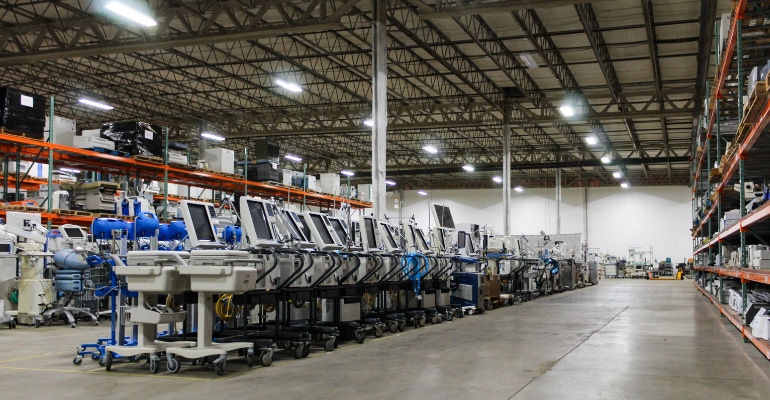GE Healthcare, reLink Medical Partner to Reduce Medical Device Waste
Their standardized medical equipment disposition solution will sell, recycle, or donate equipment no longer in use.

GE Healthcare and reLink Medical are partnering to deliver asset management solutions to healthcare providers to help reduce medical device waste, increase operational efficiency, and maximize equipment utilization. The collaboration features a standardized “medical equipment disposition solution” to sell, recycle, or donate equipment no longer needed.
Managing medical device waste independently can be time consuming and involve cumbersome processes which have hidden financial burdens. “A potential and often overlooked source of expense for providers is medical device waste, which includes aging, or end-of-life, medical devices that sit idle in a healthcare provider’s inventory,” said Mohamed El-Demerdash, president, US & Canada Service, GE Healthcare, in the press release.
Within the medical equipment disposition solution, when the partnership is selling medical equipment a percentage of the revenue from the sale is returned to the healthcare provider in the form of credits. These credits can be used to purchase equipment or parts, training for their technicians and engineers, the purchase of On-Demand services including deinstallations or specific hospital modernization projects, or can be redeemed as a wire transfer or check from relink Medical.
The companies said that the aim of the partnership is to support healthcare providers in disposing medical equipment in a safe, compliant, and environmentally responsible manner. “With this collaboration, GE HealthCare will help healthcare providers manage their clinical devices for the full lifecycle of their equipment, a true wing-to-wing solution, from capital planning and purchasing to maintenance and final disposition of the equipment,” El-Demerdash said.
As part of the collaboration, GE Healthcare and reLink Medical can also transport medical equipment for redeployment between clinical locations and provide long-term storage of devices at offsite locations through a smart warehouse solution, removing the burdensome task of managing surplus inventory within the medical facility. They will manage the logistics of picking up devices from clinical sites and cataloging them so providers know where their assets are located.
About the Author(s)
You May Also Like



.png?width=300&auto=webp&quality=80&disable=upscale)
